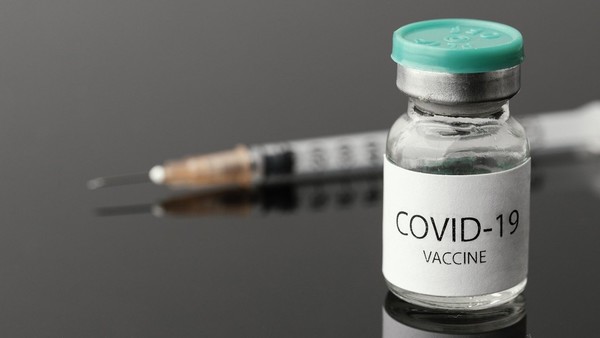The fatality rate of Covid-19 is higher than that of influenza. Still, according to a new study, Korean older adults’ perceptions of the risk of Covid-19 are significantly lower than those of flu.
Moderna Korea said Thursday that the survey, conducted in September and October by global market research firm Dynata to explore the perceptions of Covid-19 and influenza among 5,032 people aged 18 and over in five countries—South Korea, Taiwan, Singapore, Japan, and Hong Kong—confirmed the lack of awareness among Koreans 60 and over.

Although Covid-19’s hospitalization rate in Korea is more than four times higher than the flu and long Covid, a chronic Covid-19 syndrome, is a severe health concern, only 17.6 percent of Koreans 60 and older in the survey identified Covid-19 as a high-risk factor for their health. In comparison, 14.7 percent of respondents identified the flu as a high health risk.
When asked about the importance of immunization, 54.2 percent of Korean respondents said it was important to get an annual flu vaccine to prevent infection and protect their health. However, only 14.5 percent agreed that getting an annual Covid-19 vaccine was necessary, a nearly threefold difference in perception between the two diseases.
In addition, only 14.7 percent of those 60 and older recognize the importance of getting a Covid-19 vaccine, below the East Asia and Southeast Asia market average (18.1 percent). In comparison, when asked about their intention to get the updated Covid-19 vaccine, 57.8 percent of respondents 60 and older in Korea said they would.
The Korea Disease Control and Prevention Agency (KDCA) recently emphasized the urgency of vaccination for people aged 65 and older and immunocompromised individuals, as they may face more severe complications from Covid-19 infection.
“Antibodies from Covid-19 infection or vaccination slowly decline over three months. So, if you are in a high-risk group, even if you were infected this summer, you may have to consider getting vaccinated for the upcoming winter resurgence if it has been three months,” said Piyali Mukherjee, Vice President of Medical Affairs for Moderna Asia Pacific.
The study also found that in Korea, information about the effectiveness of the Covid-19 vaccine was the most important factor in the decision to get vaccinated.
Some 29.3 percent of respondents cited “information about effectiveness” as the most important factor in their decision to get vaccinated, the highest among the markets surveyed. Fear of side effects was cited as the top reason for hesitating to get vaccinated.
About 56 percent of respondents in Korea cited concerns about side effects as a barrier to vaccination, the highest percentage among the East and Southeast Asian markets. These results show that providing people with clear and reliable information about the efficacy and safety of Covid-19 vaccines is key to increasing vaccination rates and strengthening public health.
According to the KDCA, vaccinating against Covid-19 is important for healthy adults because it provides important protection. In addition to preventing infection, the vaccine reduces the risk of severe illness and death. The most common adverse reactions after vaccination are redness and pain at the injection site, which usually disappears within one to two days.
“Although Covid-19 has entered the pandemic phase, the disease burden is still higher than the flu, and continued protection through vaccination is necessary,” Moderna Korea General Manager Kim Sang-pyo said. “Moderna will continue to provide accurate information on the efficacy and safety of vaccines through the Covid-19 vaccination campaign and do our best to protect people's health in case of a resurgence.”
Related articles
- Prescriptions of Covid-19 drug Lagevrio are to be limited to 70 and older
- [Reporter’s Notebook] Korea's lagging Covid-19 vaccine development strategy and costly missteps
- Cellid finishes phase 3 dosing of Omicron-targeted Covid-19 vaccine
- Flu epidemic intensifies, accounting for 77% of increased visits to ER
- Special law proposed to compensate for Covid-19 vaccination damages based on ‘presumed causality’
- Influenza peaks out this winter but remains perilous, KDCA warns
- No clear link between Covid-19 vaccines and menstrual changes: study
- Moderna Korea wins approval for LP.8.1-targeted Covid-19 vaccine Spikevax LP.8.1
- Long Covid plagues 400 million worldwide, requiring response systems through international cooperation: US expert

